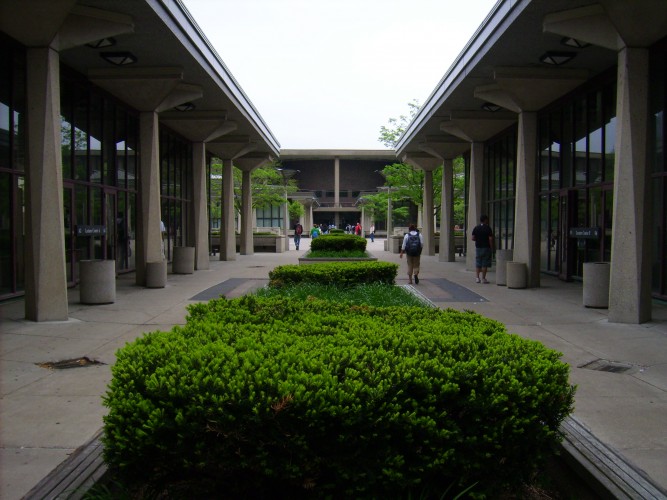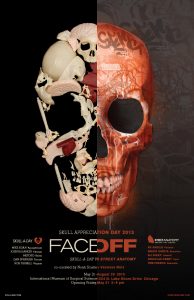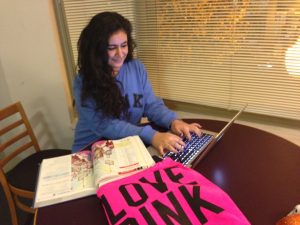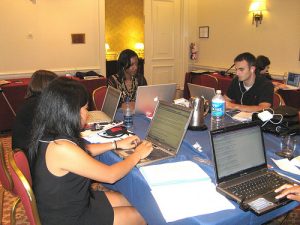When a student is experiencing commuting fatigue, is afraid of a stalker, needs to help a friend overcome a violent relationship or needs support to handle unavoidable stress, there are free campus resources that provides services to University of Illinois at Chicago students.
Campus Advocacy Network (CAN)
Afraid of a stalker or know someone in an abusive relationship but are unsure of how to handle it? The Campus Advocacy Network (CAN) is a helpful, free resource available to students, faculty and staff who are victims of sexual assault, hate crimes, domestic violence and stalking. This resource allows victims to anonymously report on-campus crimes and offers various safety plans to make the victim feel more secure.
Many student and faculty victims are unaware that CAN is able to help victims obtain orders of protection against abusers or stalkers and can receive accompaniment to class and on-campus events if they are afraid of being approached by an abuser or stalker. In crisis situations, victims can receive short-term emergency housing and sometimes financial support.
CAN strives to protect students, faculty and staff through education. At freshmen and transfer student orientations, incoming students watch skits promoting awareness about sexual assault, domestic violence, stalking and hate crimes. CAN offers programs to raise support and education about these crimes, such as “Real Talk Thursdays” and “Men Against Sexual Violence.”
Rachel Caidor, assistant director at the Campus Advocacy Network, is a member of CAN, located on the eighth floor of University Hall. “I am proud of the strong team of advocates and educators who demonstrate commitment to supporting survivors and creating a safe community here at UIC,” said Caidor.
Commuter Student Resource Center (CSRC)
Saving money is another stress college students experience. Many college students are on a tight budget when it comes to spending money, especially with commuting expenses when living off-campus. The Commuter Student Resource Center offers services that can help save money and avoid overspending, while promoting environmentally safe commuting methods.
The facility itself, located at Student Center East, includes showers, study areas, computers, lactation rooms and a kitchen. The kitchen can help students save money by giving them the option of storing and heating home-brought lunches, which is cheaper than eating at the food court every day.
The CSRC also offers workshops and services dedicated to educating students on Bike Maintenance, Renter’s Rights and cheap, effective transit options. The Off-Campus Housing Fair is a popular event that provides students with knowledge of commuting and apartment renting. This can help students to search for apartments for free, instead of hiring a realtor.
Looking to save money on gas? The CSRC provides an I-carpool ride matching service to encourage students to carpool, another way to save money on transportation costs. Besides finances, the CSRC offers social events, such as Commuter Connection’s Day and Game Day.
Counseling Center
College life often becomes overwhelming for students because of the high expectations placed on them. It feels as if there is too much work to be done in a short amount of time and there is no way out of the stress. There are deadlines to meet and students often reach their breaking point and are overwhelmed with tears and anxiety. The stresses of school, work, and a hectic social life can be too much to bear and students may not know who to talk to or where to turn with their peers being in the same situation. Instead of letting the stress build up, students with Campus Care have access to 20 free counseling sessions at the Counseling Center, located on the second floor of the Student Services Building.
What most students do not know is that the Counseling Center has a UIC Hotline available from 6 p.m. until 10:30 p.m. Sunday through Friday. The UIC Hotline entitles callers to a 50-minute phone call to talk about anxiety, relationship issues, depression, loneliness or anything else the caller wants to discuss. The caller does not have to be a student to receive this supportive counseling.
“Most of our callers are from around the Chicagoland area and not all of them are students,” said Luis Salas, Case Manager at the Counseling Center.
The service is free and confidential and is staffed by student volunteers who have passed a required course to work at the center.
The Counseling Center offers various types of counseling to students, ranging from individual sessions to a group session. Students can receive family and relationship counseling with non-students as long as the student accompanies them. Group sessions last 90 minutes without a limit on how many sessions a student may attend. The group sessions include a group dedicated to colored women, a Women’s Body Image and Eating Disorder Group, Men’s and Women’s undergraduate and graduate process groups, and will include a Dialectical Behavioral Group focused on anger management in the spring.
The center is staffed with PhD and doctoral staff members and includes an on-site psychiatrist who may administer medication to clients. Counseling is available from 8:30 a.m. until 5 p.m. Monday through Friday. The center offers appointment scheduled extended hours on Tuesdays and Wednesdays until 7 p.m.
The Counseling Center reaches out to students by working with the cultural and academic centers at the Student Services Building to administer free workshops promoting mental health and helping students manage stress. The Counseling Center and Commuter Student Resource Center have joined together to promote a free event called M.U.S.E., a workshop dedicated to helping students improve their communication skills and discover relaxation techniques. “We strive to serve our students who are under stress. We just want to be able to have the student population function. We care about their well-being. We hope they graduate and live healthy lifestyles. Our common goal is the well-being of students,” said Salas.
The Counseling Center offers services to refer the student to resources within the community for long-term sessions once a student has used her 20 sessions and requires further counseling.

















Be First to Comment